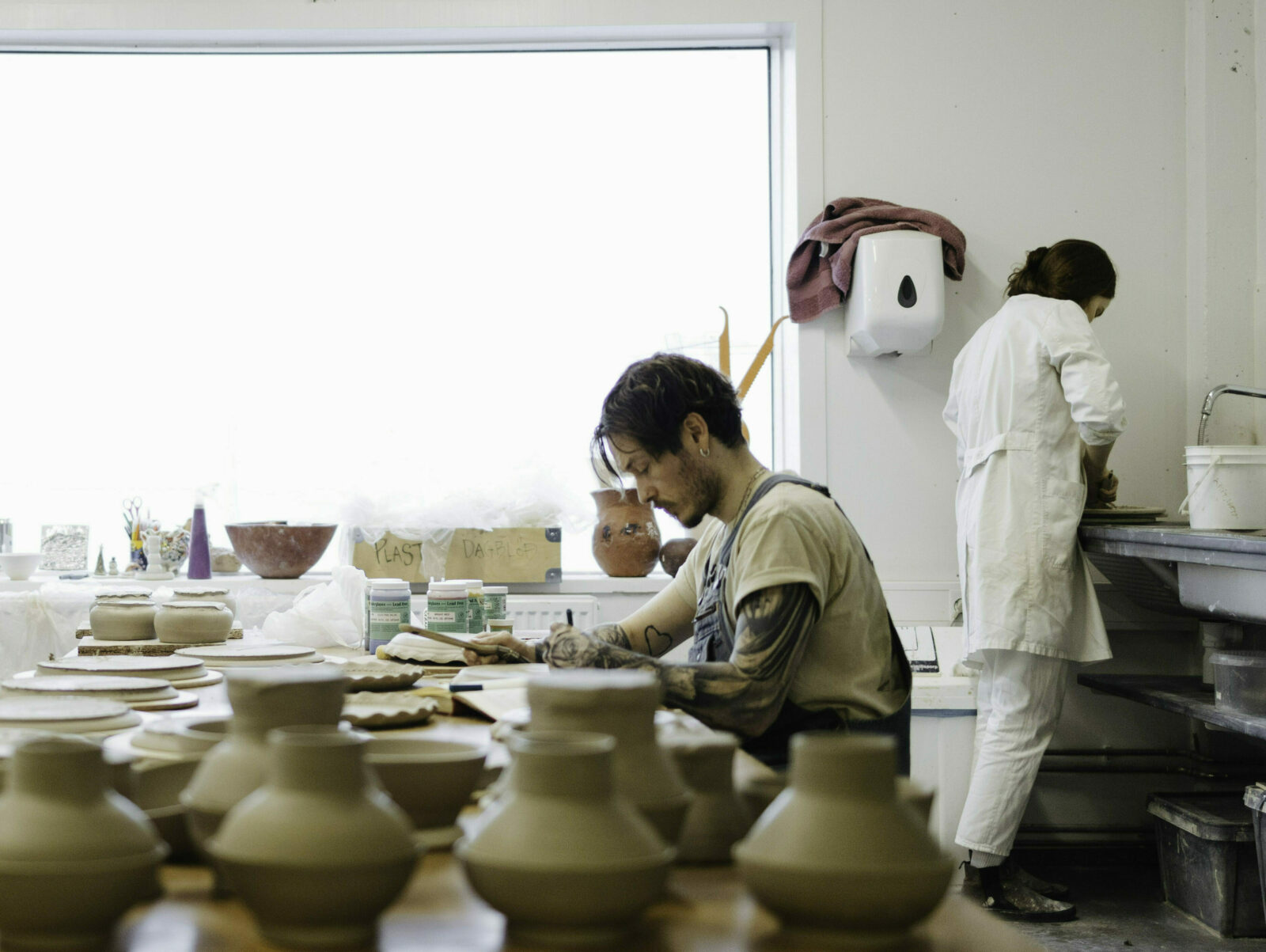Programme details for Ceramics.
Ceramics
| TWO-YEAR ADVANCED PROGRAMME |
|---|
| ABOUT THE PROGRAMME |
| The two-year programme in pottery and ceramics provides students with opportunities to learn and practice various methods and techniques for working with clay, both traditional and contemporary. The programme places a strong emphasis on conceptual development, along with practical training. The theoretical aspects of the programme aim to deepen students' professional knowledge and broaden their horizons, enabling them to contextualise their work within society and the art world. Furthermore, the programme encourages students to conduct further research and experimentation in the medium. Students who complete the programme can pursue further education at the tertiary level, with credits transferable to the institutions and universities of their choice. The selected institutions and universities evaluate the extent of transferable credits. |

| STRUCTURE |
| The Ceramics programme consists of 120 upper secondary school units, and the students will develop skills and competence on the fourth level according to the Icelandic Qualification Framework for Education. Each semester will focus on a specific subject matter, offering diverse possibilities to explore new perspectives and experiment with different methods. Additionally, students will attend seminars together where they can interact with professionals and scholars from other fields. |
| APPLICATION REQUIREMENTS |
| 1) Completed an upper secondary school matriculated education in the arts or have equivalent qualifications. |
| 2) Submit a statement of intent (50-100 words) discussing interests and goals for pursuing the programme. |
| 3) Submit digital files of portfolios with selections of your own creations, and sketchbooks with at least 10 pages. |
| ADMISSION EVALUATION |
| An admission committee reviews the applications and assesses the portfolios, and short-list applicants for interviews. The admission committee consists of the head of the programme, potters, ceramicists, artists and designers who teach at the programme. |
| TUITION FEE |
| School year 2025-26 is ISK 607,000 (ISK 303.500 per semester). |
IMPORTANT: THE SCHOOL'S LANGUAGE POLICY
HOW TO APPLY
Application is online through the INNA application portal. Use the flag icons (top right corner) to proceed with either English or Polish.
What to prepare for and expect during the INNA online application:
- Enter your Icelandic ID number (if available) to start.
- Register a valid email address – INNA application portal will send a code to confirm your email address (the sender is noreply@inna.is. Check to see if the message went into your spam). Enter the code on the application form to continue.
- In addition to basic personal information, the form asks for your education and/or work experience.
- Optional: Include a digital passport photo (not larger than 500 kb in size and preferably jpg or jpeg).
- Attached confirmed transcripts (PDF or JPG), portfolios (PDF) and examples from sketchbook (PDF: minimum 10 pages) to complete the application. The school only accepts digital transcripts, portfolios and sketchbooks. Maximum file size: 350 MB.
- Prepare a short statement about your interests and experience (50-100 words) to answer the question Field of interests
- Select the checkbox in the application to allow the school access to your study records if they are registered in the INNA system. If the INNA system does not have your study records from your earlier studies, upload certified digital copies of your certificates, transcripts and supporting documents with the application.
Before you can submit the application:
- Answer all questions marked with an asterisk (*).
- Pay an application fee of ISK 15.000 (non-refundable) with a payment card.
- Check the box by terms of application to confirm that you have read and understand the term for application fee.
| QUESTIONS? |
|---|
| Further inquiries about the programme, email to head of the programme, Katrín Karlsdóttir at kvalka@mir.is |